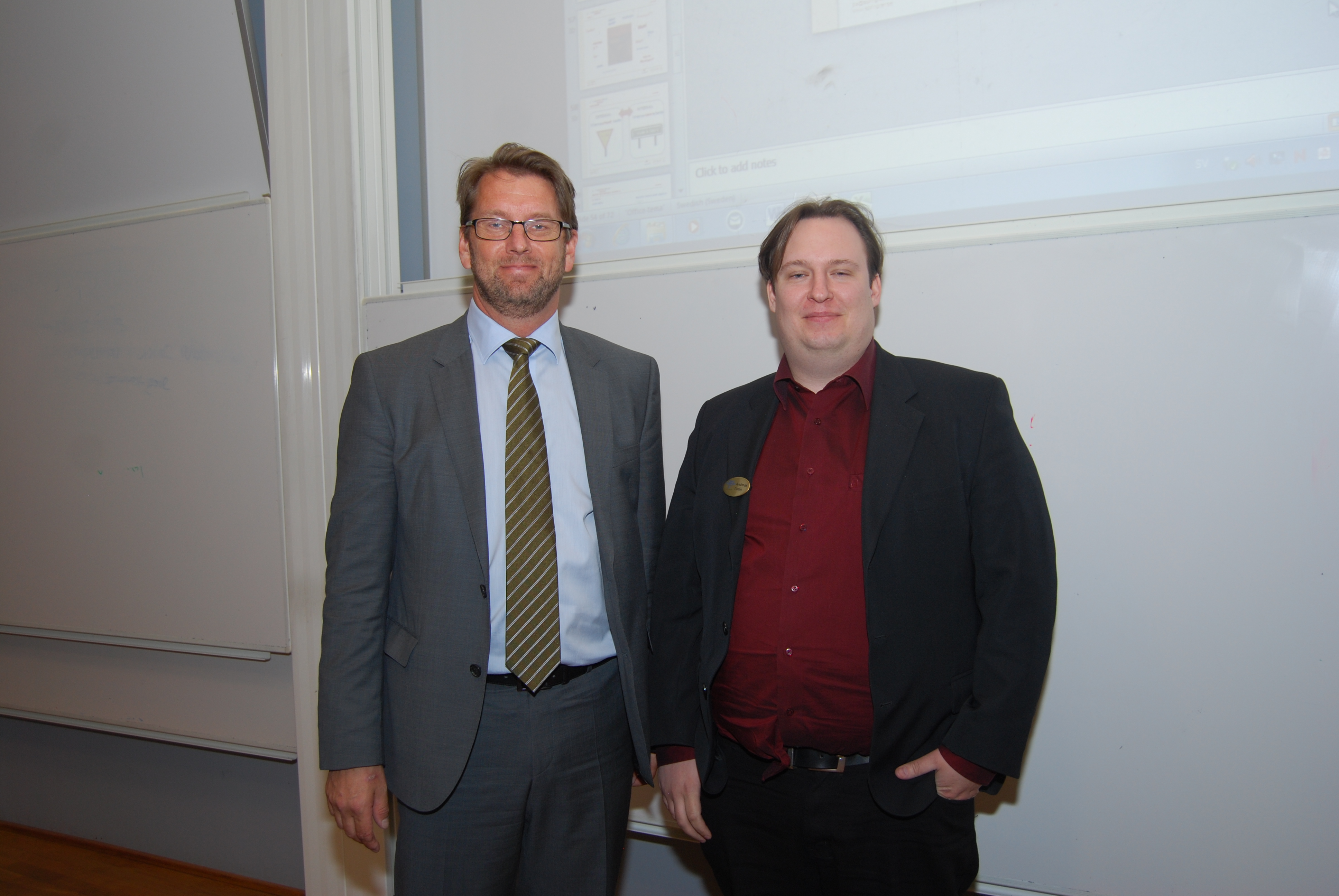2014-01-30
Thinking about a new CV? Describe what you will be doing tomorrow. Not what you did yesterday
Peter Anderberg gave a presentation to students about career development, on the theme: "How can you create your own future?". Once you have completed your studies, the world is at your feet. And if you know where you are going, you do not need a map. However, the vast majority of us have no idea what we actually want to do.

Caption: Peter Anderberg from Stockholm company Springnet AB, with Andreas Torén, Head of Career Center.
When we are looking for a job, the first things we should ask ourselves are: What are my values? Where am I in life, right now? The old type of CV, where you describe your achievements to date, is of less interest these days. Where are you going? That is what is interesting, not only for you but also for prospective employers.
The future is the only thing we can influence. You create YOUR future yourself, based on your values, the competences and abilities you have developed and the visions and ideas about the future you can visualise and articulate. Set up YOUR goals. Draw YOUR map. Only then is it worth considering which companies, organisations and people share your analysis, your values and your visions. These are the people you want to work with. And they will want to work with you.
A new world emerges
According to a noted economist and Nobel laureate, "What you see is all there is". It sounds rational, certainly, and after all, most education in schools and universities is based on this theory. But what if it turns out that both the Nobel laureate and the educationists are actually wrong? Perhaps the exact opposite is true. In twenty years' time, perhaps the Nobel Prize will go to someone who says, "What you do not see today is perhaps all there will be tomorrow". Think about it. If it were true, what would it mean for you and the world in the future? And today?
What are we not seeing today? What fundamental needs, for people and companies, will emerge over the next 20-30 years? And how can we, you, develop ideas and solutions to meet them? Open your eyes. Look round. Observe the planet, your fellow humans and yourself, from both without and within. Absorb and analyse your impressions. What trends, needs and solutions do you see that perhaps no one else does? Set your impressions against your values – what you see, what you want. Does it involve the big issues: the environment, energy, poverty and the food supply? Or the more mundane, things like fashion, travel and housing? Or perhaps a combination – how mundane issues can be brought in line with the big ones?
However, there is already agreement on some things. From an economic perspective, things will be tougher in the future than in the past. Competition will increase, both between companies and between individuals. And everything will happen so much faster and go so much further than before. As a student, this means you must not only accumulate more knowledge than did previous generations. You must also become better at transforming this knowledge into real abilities. To cope with the higher pace, you must have a real feel for what you do. Your work must energise you. And we all become energised when we are doing what we really like doing.
Which brings us back to where we started. What you have done in the past is less relevant. It is far more important – to you and your prospective employer – that you know what you really want to do in the future. It will be crucial for you to be able to develop competences and energy to assert yourself in the labour market. But above all, it is about creating the conditions for an enjoyable life.
As the Swedish author Vilhelm Moberg once wrote, "Now is your moment on earth. Make the most of it".
Christina Almgren



